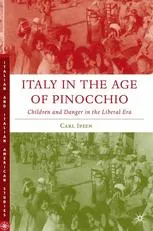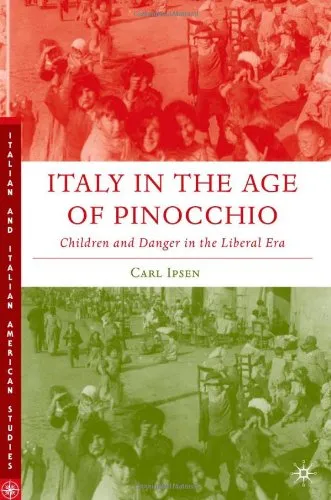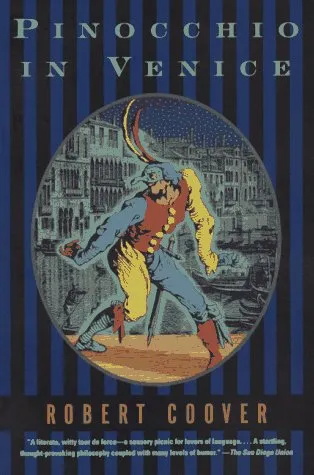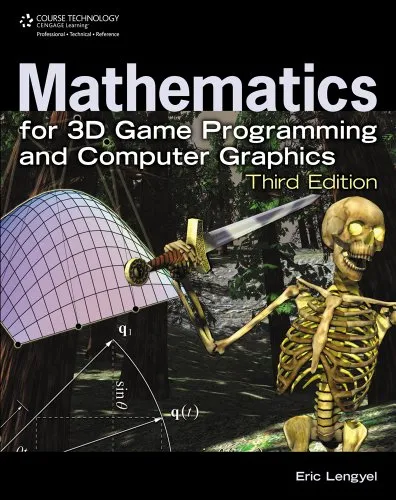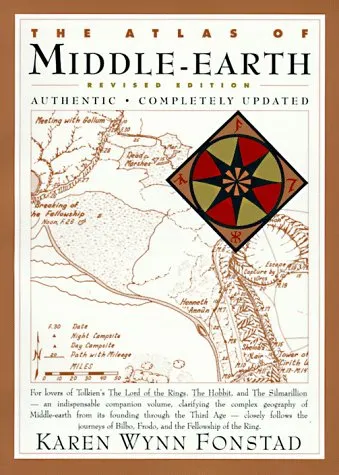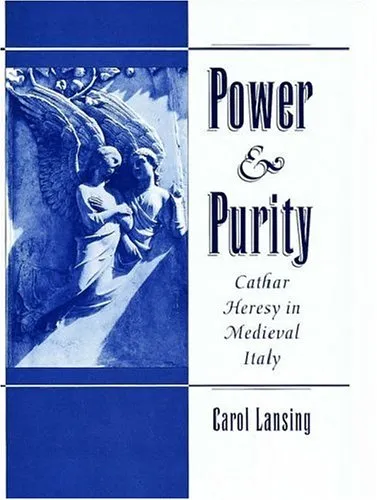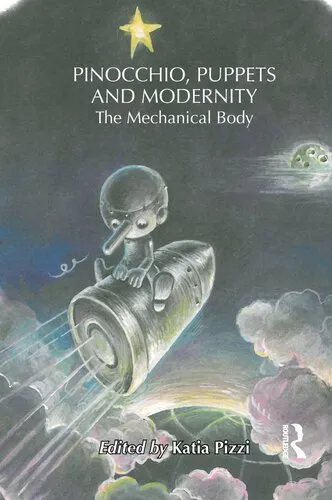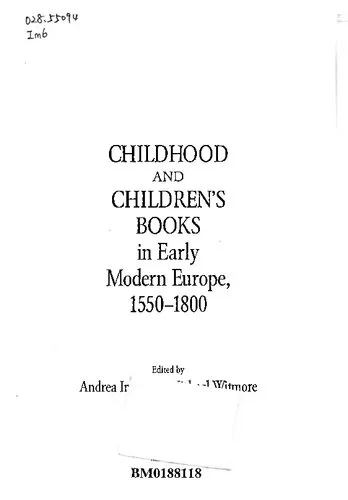Italy in the Age of Pinocchio: Children and Danger in the Liberal Era
4.0
Reviews from our users

You Can Ask your questions from this book's AI after Login
Each download or ask from book AI costs 2 points. To earn more free points, please visit the Points Guide Page and complete some valuable actions.Related Refrences:
Introduction
Welcome to the fascinating world of Italy in the Age of Pinocchio: Children and Danger in the Liberal Era, a journey into the complex and evolving landscape of childhood during a transformative era in Italian history. This work delves into the societal changes and challenges faced by children, shaped by the currents of modernization and political evolution in late 19th and early 20th century Italy.
Summary of the Book
Through a detailed analysis, this book explores the nuanced perceptions of childhood and the associated concept of danger during Italy's Liberal Era. This period, marked by the country's transition towards modernization, saw substantial changes in societal norms. As Italy transformed politically and economically, children became symbolic representations of both national hopes and fears. Utilizing diverse sources, including literature, government documents, and popular media, the book paints a comprehensive picture of the societal challenges that framed childhood experiences.
The book's title is inspired by the iconic character Pinocchio, whose inherently mischievous nature reflects broader societal concerns about the risks and moral ambiguities associated with growing up. Through this lens, the work investigates various dimensions of perceived dangers—ranging from street crime and physical safety to the moral and ethical development influenced by education and literature.
Key Takeaways
- The Liberal Era was a pivotal time in Italy's history that fundamentally reshaped the public perception of childhood.
- Notions of risk and safety were deeply intertwined with ideas about national identity and the future potential of the nation’s youth.
- Childhood during this time was defined as much by opportunities as by the dangers perceived by adults—underscored by economic, cultural, and political shifts.
- Literature and media played crucial roles in both reflecting and shaping societal views on youth and danger.
Famous Quotes from the Book
"In the age of Pinocchio, children embodied the promise of a modern future and yet also the haunting fears of instability and unpredictability."
"The story of Pinocchio is more than a tale of a wooden puppet; it is a narrative thread woven into the broader fabric of Italian society, reflecting its dreams and its anxieties."
Why This Book Matters
This book is an essential exploration for understanding how childhood and concepts of danger have been historically constructed and interpreted. The implications of its analysis extend to contemporary discussions about child welfare, education, and societal expectations. By contextualizing these issues within Italy's Liberal Era, it offers valuable insights into how past perceptions continue to influence present-day thinking across the globe.
Moreover, Italy in the Age of Pinocchio enriches the dialogue on national identity and cultural narratives by showing how children's literature and societal myths shape collective consciousness. Through its interdisciplinary approach, it bridges historical research with literary analysis, providing a multifaceted view of an essential period in Italian history.
Free Direct Download
You Can Download this book after Login
Accessing books through legal platforms and public libraries not only supports the rights of authors and publishers but also contributes to the sustainability of reading culture. Before downloading, please take a moment to consider these options.
Find this book on other platforms:
WorldCat helps you find books in libraries worldwide.
See ratings, reviews, and discussions on Goodreads.
Find and buy rare or used books on AbeBooks.
1462
بازدید4.0
امتیاز0
نظر98%
رضایتReviews:
4.0
Based on 0 users review
Questions & Answers
Ask questions about this book or help others by answering
No questions yet. Be the first to ask!
